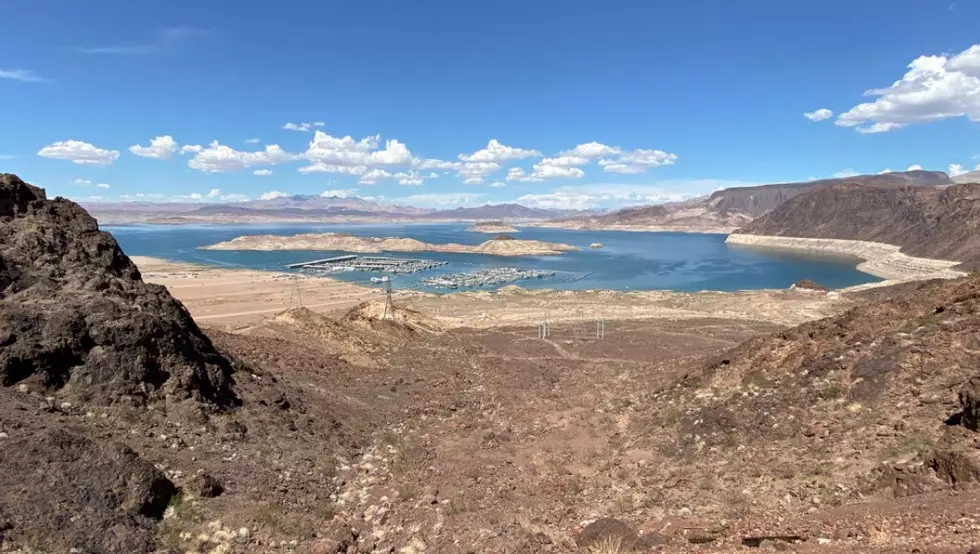
Nevada tribes eligible for millions in water infrastructure funding
Jeniffer Solis
(Nevada Current) In the last decade, Native American communities throughout Nevada have seen a significant increase in Safe Drinking Water Act violations due to failing infrastructure and paltry federal funding for tribes.
Now the federal agencies responsible for protecting tribal health and water safety are investing more than $1 billion in funding to accelerate the development of drinking water and community sanitation infrastructure projects in Indian Country.
The Department of the Interior’s Bureau of Reclamation and the Department of Health and Human Services’ Indian Health Service announced the historic funding on Tuesday following the first-ever White House Clean Water Summit.
According to the agencies, the more than $1 billion in funding could potentially fully fund the construction costs for about 90 water projects in Native American communities, depending on the amount requested by each applicant.
Part of that funding, $320 million, will be reserved for tribes in the 17 western states served by Reclamation, including Nevada. Projects in eligible western states may be funded for up to 100% of the cost of planning, design or construction.
Funding for the tribal water and sanitation infrastructure will be allocated from the Bipartisan Infrastructure Law passed by Congress and signed into law by President Joe Biden in 2021. The announcement is also part of a newly signed agreement between the agencies to coordinate directly to effectively develop water infrastructure in native communities.
“It is critically important that Tribal communities have clean drinking water sources, reliable sewage systems, and effective solid waste disposal facilities. Investing in critical infrastructure helps to improve health and safety for children and families, and advances economic opportunities throughout Tribal communities,” said HHS Secretary Xavier Becerra in a statement.
Nevada has 21 federally recognized tribes that span 28 reservations, bands, colonies and community councils. Most reservations in Nevada are remote and face a host of challenges unique to rural communities, including lack of infrastructure, inadequate water treatment facilities, and limited funding.
Tribes in rural Nevada are highly vulnerable to water insecurity because of a lack of access to water infrastructure stemming from policy decisions made in the early days of federal agencies such as the Bureau of Reclamation.
“Having access to safe and reliable water systems is an essential matter of public health,” said Indian Health Service Director Roselyn Tso in a statement “Unfortunately, far too many Native American communities are still awaiting these basic services.”
“This agreement with the Bureau of Reclamation will accelerate completion of these critical projects and reduce barriers for our tribal nations to partner with our agencies,” she continued.
During the summit, the White House called on state and local governments to create and advance policies and strategies for conserving and restoring America’s freshwater systems. The Upper Snake River Tribes — which includes the Fort McDermitt Paiute-Shoshone Tribe and the Shoshone-Paiute Tribes of the Duck Valley Reservation in Nevada — signed onto the initiative to advance freshwater restoration in their communities.
Researchers in Nevada found that from 2005 to 2020, the Environmental Protection Agency registered 187 health-based violations in public water systems serving Native American communities in Nevada, the most common being “volatile organic compounds” in water, or harmful gasses produced by a number of products and processes including common sources like gasoline.
Recent EPA reports suggest that trend has continued in Nevada since. From 2019 to 2023, the EPA registered 23 Safe Drinking Water Act violations in public water systems serving the Fort McDermitt Paiute-Shoshone Tribe. Most of those violations were due to groundwater contamination in the tribe’s drinking water, according to the EPA.
During that same time period, the EPA recorded 48 Safe Drinking Water Act violations for the Shoshone-Paiute Tribes of the Duck Valley Reservation, a majority of which were due to volatile organic compounds infiltrating the tribe’s drinking water caused by a lack of infrastructure and inadequate water treatment facilities.
Improvements to sanitation facilities can reduce inpatient and outpatient visits related to respiratory, skin and soft tissue, and gastroenteric disease, according to IHS. Based on 2020 data, every $1 spent on water and sewer infrastructure can save $1.18 in avoided direct health care costs for these diseases.
“At the Interior Department, we know that having modern water infrastructure is not only crucial to the health of our kids and families – it’s also important for economic opportunity, job creation and responding to the intensifying effects of climate change,” said Principal Deputy Assistant Secretary for Water and Science at the Interior, Michael Brain.
